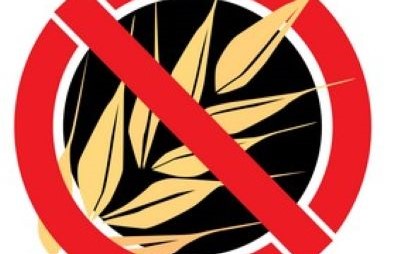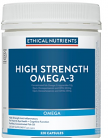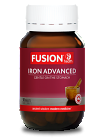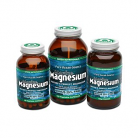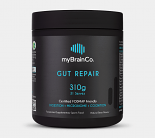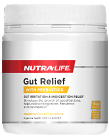Coeliac Disease and Gluten Intolerance
So you’ve just been diagnosed as Coeliac or Gluten Intolerant? Or suspect that you might be? These are two different conditions, but both require similar treatment and the avoidance of gluten in the diet.
Coeliac disease is an autoimmune condition, in which a reaction to gluten (the protein in wheat, rye, barley, spelt, kamut and oats) makes the body accidently produce immune antibodies to its own intestinal lining. This causes inflammation and damage to the tiny finger-like projections of the mucosa (known as villi) and they eventually become flattened. The ability of the intestines to absorb nutrients from food is greatly reduced, and this can cause complications like Osteoporosis, Infertility, Miscarriage, Depression, chronic poor health and an increased risk of certain cancers. Some people experience symptoms, such as Fatigue, Anaemia, flatulence, bloating, Diarrhoea or Constipation, cramping, nausea and weight loss, but other people have no symptoms at all. It is estimated that approximately 1 in 100 Australians suffer from this condition.
In contrast, in a Gluten Intolerance there is no autoimmune reaction. This means that tests for Coeliac disease may come back with a negative result, leaving you rather confused. Those who suffer from Gluten Intolerance have similar symptoms to a Coeliac, their gut wall may also be inflamed and damaged, but the difference lies in the antibodies that their body produces against the gluten molecule (and these do not attack their own intestines).
Whether you have Coeliac disease or a Gluten Intolerance it is still likely that you will have to follow the same treatment. This involves, firstly, a move to a gluten-free diet. It is important to avoid all wheat, rye, oats, barley, spelt, kamut and triticale. Gluten-free cookbooks and cooking courses can help, and there are now plenty of gluten free foods available. Safe grain alternatives include rice, amaranth, quinoa, buckwheat (this is not related to wheat), corn and millet/sorghum.
In addition, it will be important to reduce the inflammation in the intestines and heal any damage done to the area. The ingredients in Nutra Life Gut Relief, Nutra Life Organic Aloe Vera juice & Manuka Honey and Blooms Slippery Elm Powder include things such as Slippery elm, Glutamine and Aloe Vera and will all be soothing and healing to the gastrointestinal mucosa. If taking Slippery Elm or another soothing fibre supplement it is important to drink plenty of water to avoid constipation. Goldenseal is a herb that has been used for hundreds of years to repair damage to mucosal tissue, and Vitamin A and Zinc will also help in this area. Nature's Sunshine Golden Seal and Ethical Nutrients Zinc Fix are both good choices. Ethical Nutrients High Strength Fish Oil full of omega 3 fatty acids, will reduce inflammation by changing the production of cellular chemicals known as cytokines. Ethical Nutrients High Strength Fish Oil Capsules are also available for those who don't like the thought of taking a liquid oil.
Vitamin B12, Folate and Iron are commonly deficient in untreated Coeliac disease because of poor absorption from the intestines. This often leads to Anaemia, and thus it is important to supply these blood building nutrients when treating the condition - they are all contained in Fusion Iron Blood Tonic.
Finally, it is necessary to replace/rebalance the intestinal flora of the gut, through Ethical Nutrients Inner Health Plus probiotics, which help to promote healthy immune responses and produce substances that ‘feed’ the gut wall.
Updates - 24 October 2014
Kumar, A et al (2011), ‘Latent celiac disease in reproductive performance of women’, Fertility and Sterility, Volume 95, Issue 3, pp. 922-927.
Many people are now aware that Coeliac disease can cause uncomfortable digestive symptoms. However, it can also be a silent condition, in which there is no diarrhoea or abdominal pain. Increasing research is linking Coeliac disease to poor fertility in women, including disorders such as late menarche, early menopause, infertility, intrauterine growth restriction, recurrent spontaneous abortion, and stillbirth.
This recent study measured the levels of antibodies to gluten in the blood of a sample of women attending a hospital in New Delhi. Those with higher rates of spontaneous abortion, stillbirth, intrauterine growth restriction and unexplained infertility also had significantly higher levels of antibodies (indicating subclinical coeliac disease).
The research suggests that, in women with these conditions, it may be worth getting tested for Coeliac disease, in case this is a contributing factor.
Vive Health Naturopaths recommend the following products for Coeliac disease.
| Products | Suggested Dosage |
| 1. Nutra Life Gut Relief (180g) | 1 scoop x 2-3 daily. |
| 2. Ethical Nutrients High Strength Fish Oil (170ml, 280ml) OR | 2.5 ml x 2 daily. |
| 2. Ethical Nutrients High Strength Fish Oil Capsules (60 Caps, 120 Caps) | 2-3 x 2 daily with a meal. |
| 3. Nutra Life Organic Aloe Vera juice & Manuka Honey (1.25L) | 25 ml x 2 daily on an empty stomach. |
| 1 cap daily before bed (away from food). | |
| 5. Cooking for Celiac, Colitis, Crohn’s & IBS | Try some new recipes... eating gluten free can be delicious. |
| 6. Fusion Iron Blood Tonic (30 Tabs, 60 Tabs) | 1 daily with a meal. |
| 7. Blooms Slippery Elm Powder (125g, 200 Tabs) | 1-2 tsp in water x 2 daily. |
| 8. Nature's Sunshine Golden Seal (100 Caps) | 2 caps x 2 daily (with a meal). |
| 9. Ethical Nutrients Zinc Fix (100g) | 1/2 tsp in water twice daily (with a meal). |
NOTE: Consideration should always be given to individual requirements. Please consider seeing a qualified practitioner before commencing a new treatment protocol or when combining supplements with pharmaceutical medication.
For more information on Coeliac Disease, Gluten Intolerance or to ask a Qualified Naturopath a question Click Here.
Reference:
The Coeliac Society (2010), What is Coeliac Disease?, accessed November 3 2010, http://www.coeliacsociety.com.au/dis-what.html.
Dahele, A & Ghosh, S 2001, ‘Vitamin B12 deficiency in untreated celiac disease’, Am J Gastroenterol, 96(3):745-50.

